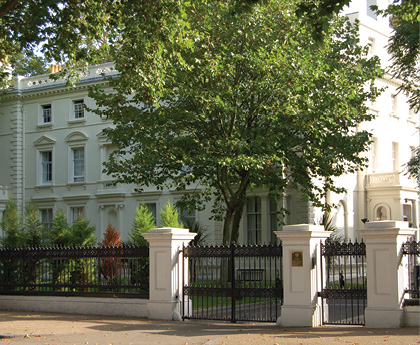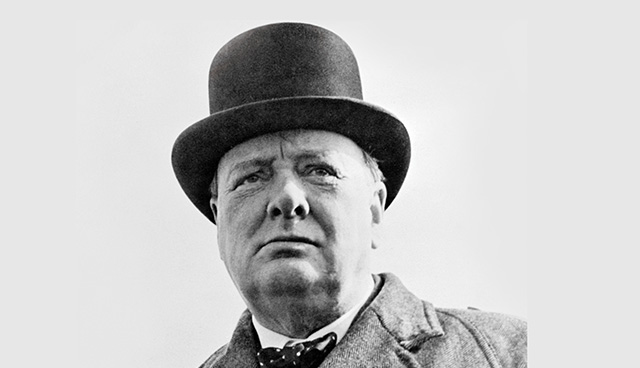Toxic Britain


With Ireland having expelled the Russian Ambassador over the alleged use of chemical weapons by Russia in the UK, Owen McQuade highlights the irony of next year’s centenary of Churchill’s use of chemical weapons against the Russians and his planned use of chemical weapons against the Irish.
The British were the first to use biological agents in modern warfare, as described in Paul Muldoon’s poem ‘Meeting the British’. The Armagh-born poet recounts the first recorded case of the use of biological warfare during the 1763 Pontiac uprising, when the Indians besieged Fort Pitt. When two Indian chiefs visited the fort to urge the British to surrender they were given gifts: “They gave us six fishhooks and two blankets embroidered with smallpox.” The infected blankets did their work with three quarters of the Native American population dying in smallpox outbreaks thereafter.
The use of chemical agents came into its own during WWI. Although the Germans were first to use mustard gas at Ypres, Belgium in April 1915 the British forces soon joined them and by 1918 a quarter of all artillery shells were filled with gas. After the war Britain continued to use chemical weapons of increasing potency.
Churchill was an enthusiastic advocate of the use of chemical weapons, particularly on “uncivilised tribes”. It is suggested that poison gas was used quell unrest in Iraq in 1920 and in the 1921 unrest in Mesopotamia when Churchill asserted: “I am strongly in favour of using poisoned gas against uncivilised tribes, it would spread a lively terror.” However, while historians are undecided if chemical weapons were actually used, such weapons were indeed sent to both regions of unrest but heavy bombing of villages and vast air superiority probably negated their use. Later, Churchill was keen to use chemical weapons during periods of unrest in India and what became known as the ‘Rawalpindi experiments’ in the 1930s saw hundreds of Indian soldiers exposed to mustard gas to determine the effects of the gas on humans. During WWII Churchill proposed using poison gas on German cities and possibly Anthrax but he was overruled at Cabinet.
However, there is one undisputable and well documented use of chemical weapons by British forces: on the Russians in 1919. Churchill planned and executed a chemical attack on northern Russia. The chemical weapon used was known as an ‘M Device’ which was developed in the final months of WWI by scientists at the government laboratories at Porton in Wiltshire. The device was an exploding shell containing the toxic gas diphenylaminechlorarsine. The effects on those exposed to this highly toxic gas were vomiting, coughing up blood and instant, crippling fatigue. Some 50,000 M Devices were shipped to Russia and the first attack was on 27 August 1919 against the village of Emtsa. Bolshevik soldiers who were caught in the cloud of green gas collapsed unconscious. Throughout September 1919, the attacks continued against several Bolshvik-held villages, although the weapons proved less effective than hoped, partly due to the damp autumn weather. The attacks were halted at the end of the month and the remaining weapons dumped in the White Sea.
Nearly a century later the use of a chemical agent on British soil has caused quite a stir. Blending with the British fascination with espionage, the whole episode captured the UK public’s imagination, unlike the killings of several Russia expats by more conventional means in London over the last few years. That is not to dismiss the deplorable use of a chemical agent in a public place, or indeed any place. But the high-moral tone taken by the British Government is at odds with its track record on this issue. There is a great irony that the main cheerleader for action against Russia is Churchill’s biographer and British Foreign Secretary Boris Johnston.
In Paul Bew’s ‘Churchill and Ireland’, the unionist historian details the British Government’s perspective on Ireland’s neutrality during the second world war. Bew highlights a British War Cabinet memorandum of 8 October 1940, that stated it was decided that in the event of a German invasion of Ireland the RAF should be prepared to use poison mustard gas. Dropping mustard gas ordnance on Ireland would have certainly had an impact on not only any German invaders but also the Irish population. This adds more than a touch of irony to the Government’s decision to support the British Government in the Russian chemical weapons saga.
As Ireland has rushed to support the UK on its high moral ground we should be careful that the ground is very soft under foot and perhaps we should also remember that our neutrality from being involved in Britain’s wars was hard won a century ago. The expelling of the Russian diplomat also set a difficult precedent for the Government. This played out just weeks later with calls for the Government to expel Israeli diplomats following the shooting of dozens of Palestinian on the Gaza border. Britain claiming the high moral ground is also at odds with its behaviour in Ireland, but that’s another story and one we all know well.
“I am strongly in favour of using poisoned gas against uncivilised tribes, it would spread a lively terror.”





